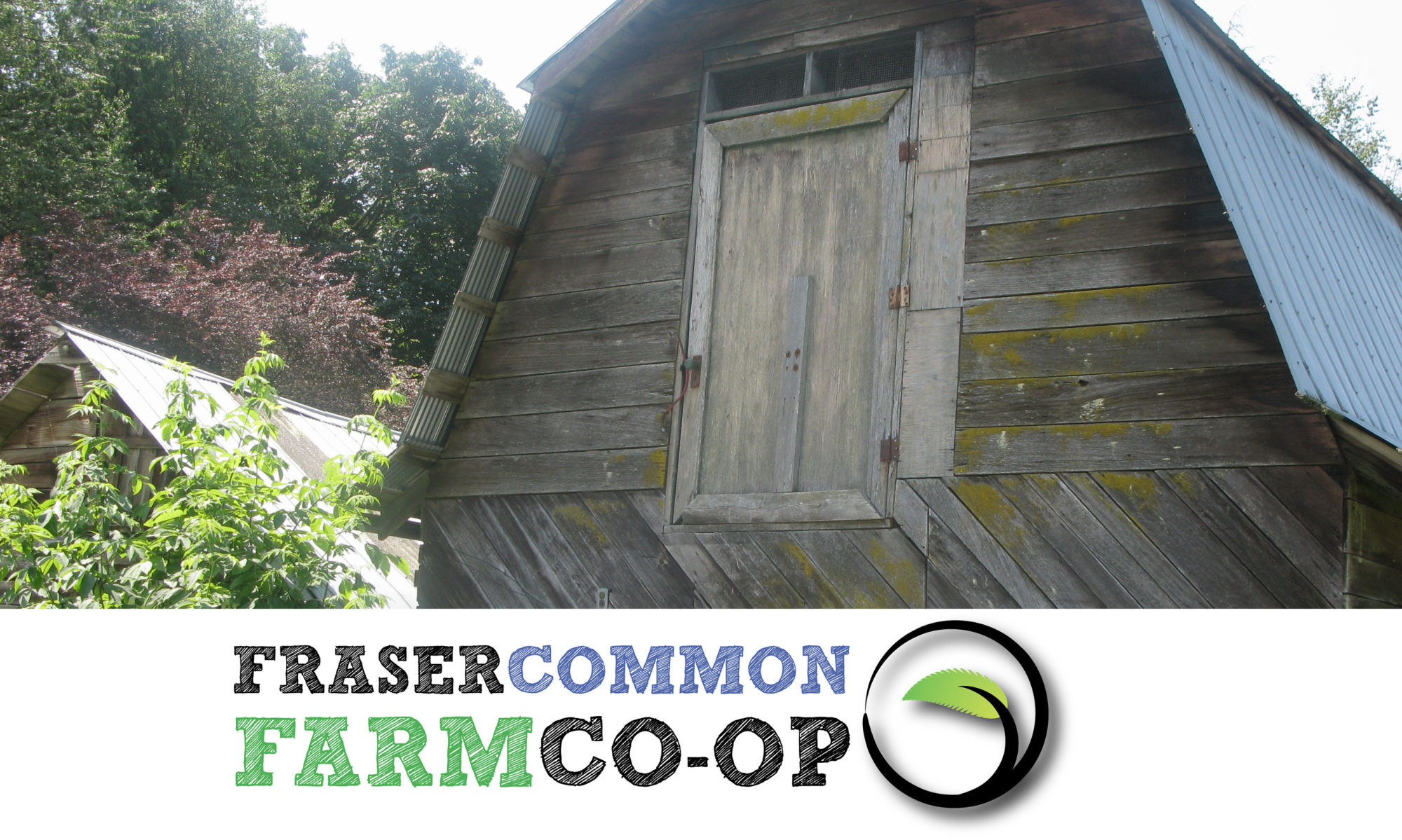We undertook this project because we believe that climate change is happening. Coop members have been discussing the impacts of climate change for several years. On a global level we can see its effects all around us: pine beetle infestations, worsening wild fire seasons, shrinkage of polar ice, persistent droughts. We expect this on-going project to take several years.
By way of introduction, Fraser Common Farm Cooperative was incorporated in 1977 and holds twenty acres of Class 4 farmland in the Fraser Valley of British Columbia, near the small town of Aldergrove (see the map of our area and its soil classifications). We have a successful farming operation which we’ve developed our over the last 40 years.
Diversity is Key
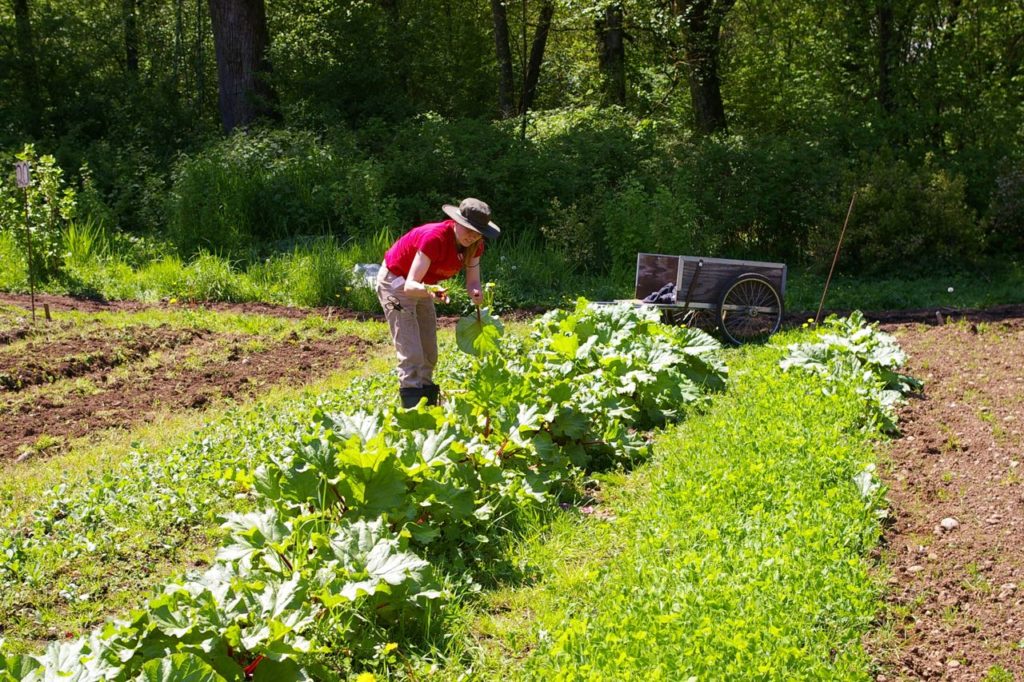
When we started our farming business in 1985, we did an extensive process to identify plants that would do well on our farm. We looked at field crops that were grown at similar latitudes in other countries and, since our property has a number of micro-climates, we considered a wide diversity of crops. We have areas that are high, well exposed to the sun and very well drained as well as areas that are shady, damp and cool. Finding crops that work well in these diverse micro-climates is essential to adapting to changing climate.
As we formed a business plan we explored a diversity of markets selling directly to chefs, restaurants, and caterers. We expanded into box programs and farmers markets as our production capacity increased.
We find that diverse crops and diverse markets provide our business with a degree of resilience. Regardless of weather, we always have something that does well and that we can take to market. On a small farm, business diversity is vital. We believe this is also an important step towards climate change resilience.
Developing Good Practices
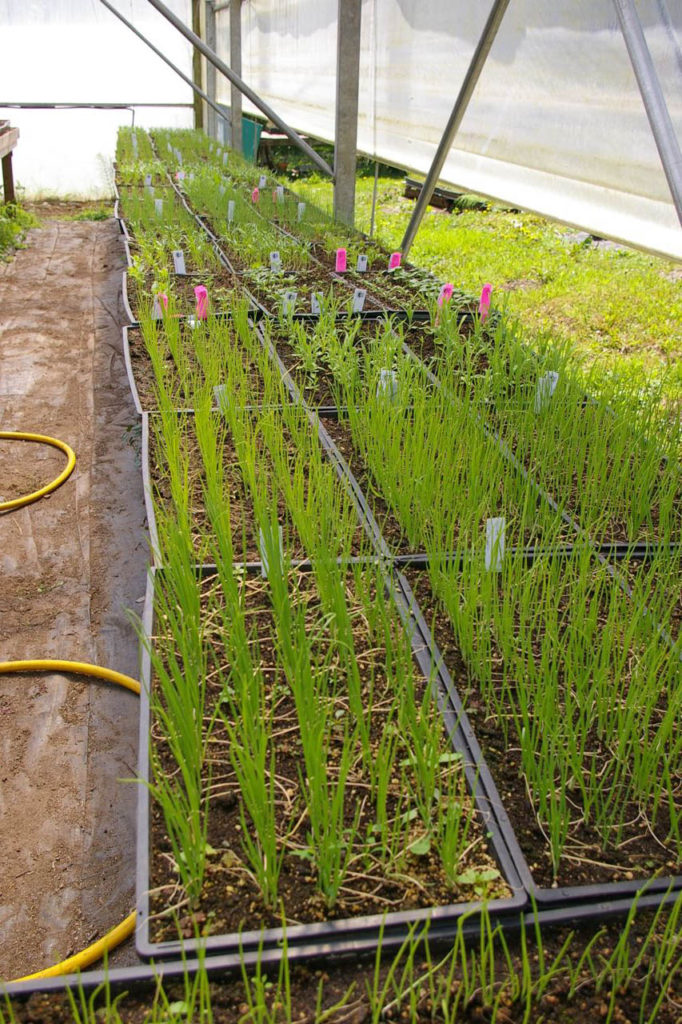
We use unheated polyhouses to extend the growing and harvesting season. This allows us to get plants in the ground earlier, gives us a head start on the weeds, and keeps crops warm enough in the Fall for them to mature and ripen. The polyhouses also keep our flower crops dry allowing us to harvest them as needed rather than counting on dry weather.
We compost all our waste bio mass so that nothing other than shipped product leaves our property. Our soil is very sandy and needs constant improvement with organic matter. Rather than disposing of trimmings, excess seedlings, and damaged product, we turn it into quality compost to improve our soil.
Fraser Common Farm is a certified organic farm. We don’t use industrial chemicals and fertilizers. This has an indirect benefit on our total greenhouse gas emissions.
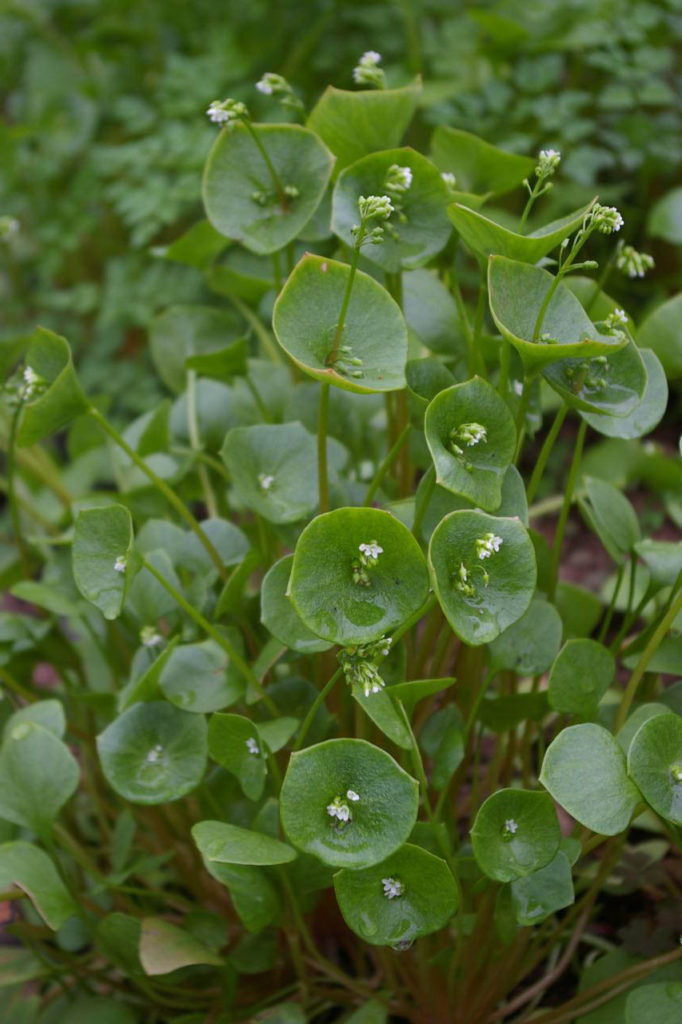
Every season we trial new crops and new varieties, seeking to improve our product lines. There is constant tweaking and adjustment based on crop observations and customer preferences. Over the thirty years we’ve been farming in the Fraser Valley of BC, changing climate and extreme weather events have required frequent adjustments to our planting plans. This practice addresses some of the needs for diversity and resilience.
Adapting to Change
While we believe it is vital that we understand how on-farm practices exacerbate climate change and to seek less damaging solutions, on our small farm changes to our practices will likely not mitigate climate change to any significant extent. It is clear that what we can do on-farm is to find strategies for adaption. Adaption has the potential to ensure that we can continue to have a successful farming enterprise.
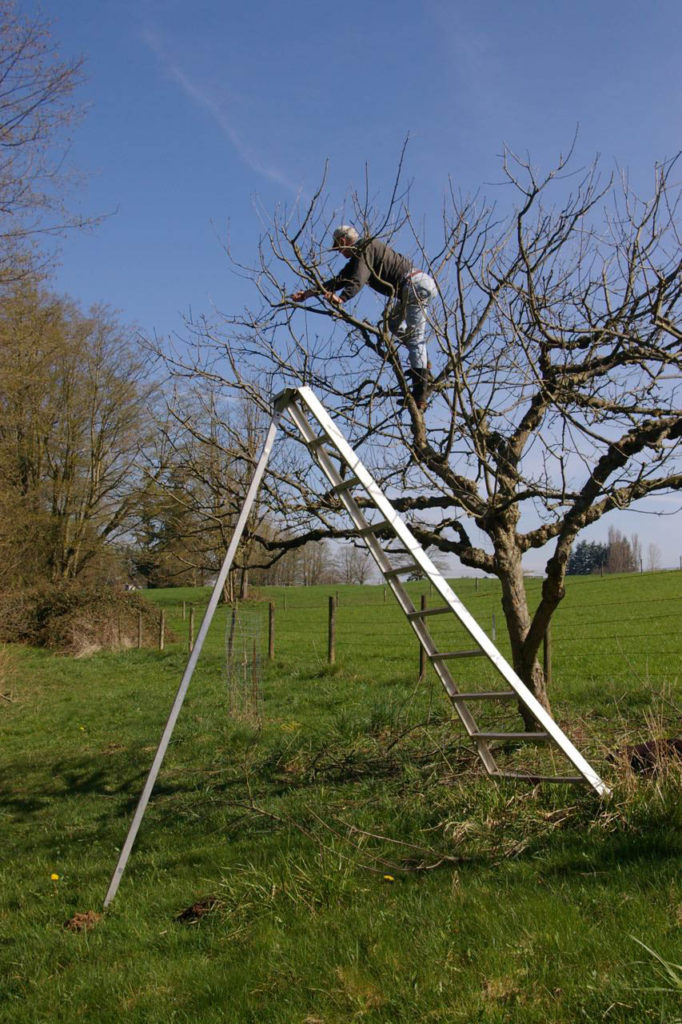
Fraser Common Farm Cooperative’s work focuses on health, healing and connecting people to the food they eat and where it comes from. We honour the land by strengthening our relationship and responsibilities to it. We live and work on unceded Coast Salish Territories. Many of our practices, including the seeds we plant, the ways we educate ourselves and others, and our methods of growing food came to these lands through the ongoing process of dispossession and colonialism. We hold this understanding in our interactions and engagements with this land and its people.
We are thankful to Vancity Credit Union for their support in developing a solid foundation for us to work from. We hope this report will provide useful resources and ideas for other small farms engaged in similar processes.
